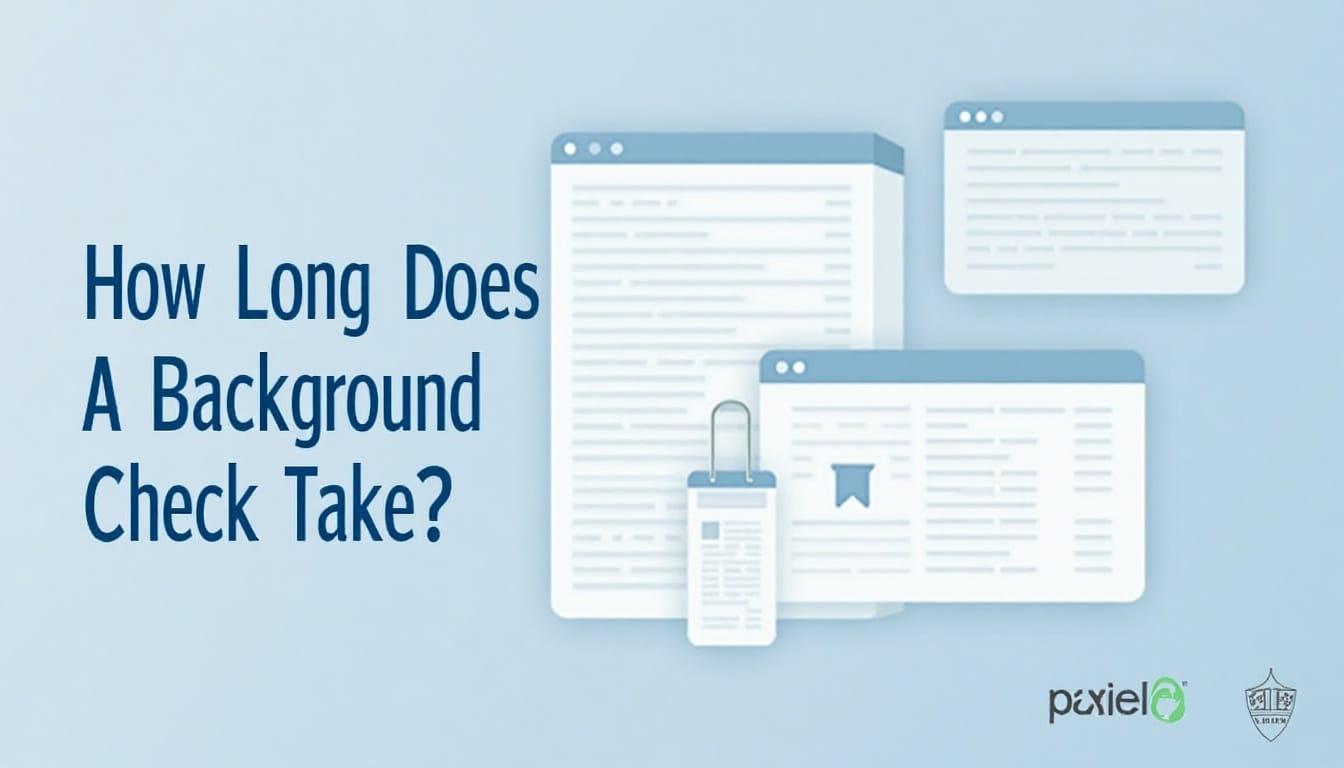Featured Post
5 Essential Reasons Your Business Needs Insurance
How To Clear Cache And Cookies On Chrome?
How Long Does A Background Check Take?
How Can I Tell If My Phone Is Unlocked?
Ex-Plore Blogs

May 12, 2025
Business
5 Essential Reasons Your Business Needs Insurance
Do you realise that one lawsuit could put your business at risk? If you don’t have insurance, it can lead to financial devastation. Business insurance protects a business from numerous risks. This includes the damage to business property, legal costs incurred, and loss of income. Let's discuss the 5 reasons your business needs insurance can help you prepare and plan for the future of your company. Key Points Business insurance safeguards your business against several risks. It aids in paying for costs related to property damage and legal expenses. In case of lost income, business insurance can offer financial assistance. Having the right insurance can help you make sound choices. Business insurance helps your company strive towards success. Like all other business assets, your company must be protected with business insurance. Understanding the Importance of Insurance in Modern Business It isn’t just a matter of preference. Every business is required to have appropriately tailored business insurance. It helps in managing diverse risks, protecting assets, and sustaining operations during challenging times. Insurance can protect your business from unexpected events that could be catastrophic. Also, safeguarding your business from unnecessary financial losses enhances peace of mind. Subsequently, attention can be diverted toward business growth and improvement. Different Forms Of Coverage Your Company Might Be Eligible For Safeguarding your business with insurance requires awareness of different types of coverage. Every insurance type offers unique protection against different risks. With this, your operations are always secured. General Liability Insurance General Liability Insurance is a must-have for your business. It is key to protecting businesses against claims for bodily injury, property damage, and personal injury. It pays for legal fees, medical costs, and damages to the claimant. For instance, if a customer slips and falls on your premises, this insurance helps. This amount is paid towards the settlement of the claim so that your business will not be impacted by the claim. Property Insurance Property Insurance safeguards the physical assets of the business, like buildings, equipment, and inventory. It includes loss or damage from fire, storm, or theft. With property insurance, your business can recover quickly from such incidents. Take, for example, a fire that causes damage to the office premises; this insurance helps in paying the repair or replacement expenses. It lessens downtime. Business Interruption Insurance This type of insurance protects income as well as expenses incurred in the process of temporarily halting business operations. Business Interruption Insurance helps keep your business from sinking during more difficult scenarios. It protects ongoing expenses like rent or salaries for employees while you are in recovery mode. This type of insurance can be very useful, for example, after a natural disaster. It may be the difference between closure and recovery for your business. The Heavy Price of Skipping Business Insurance The absence of business insurance can expose your company to substantial financial damages. To some extent, you’re aware of natural catastrophes, lawsuits, and other risks. Without insurance, these risks become significant problematic issues economically. Financial Consequences of Being Underinsured If you’re underinsured, it means that you lack proper coverage for losses and that you will not be able to mitigate damages from unforeseen circumstances. A lawsuit, for instance, may incur huge losses that would be extremely difficult to recover from financially. Such a scenario can damage your finances, hurt your reputation, or worst come to worst, force your business to shut down. Statistical Insights on Business Fails Due to Lack of Coverage Research indicates that businesses operating without any form of insurance become prone to failing and closing down. A large portion of businesses that go through massive losses without insurance are forced to shut down permanently. Securing insurance enables you to protect your finances and sustain business operations. Attempting to make sound financial decisions requires an understanding of why business insurance is imperative. Utilising insurance as a risk mitigation tool allows you to strengthen and safeguard your business against eventualities, thereby ensuring continued success. Top 5 Benefits of Business Insurance Every business operates under multiple risks, and insurance can come in handy. Let's unveil the must-know benefits. Obtaining the correct insurance will help safeguard your business from unforeseen circumstances. In this case, protecting your business against expensive lawsuits, protecting your assets, business continuity, caring for your employees, and legal compliance are some of the reasons. Fulfilling these responsibilities with the right insurance allows for risk management and growth of the business as well. The wide array of benefits allows for concentration on business expansion and enhancement. Reason #1: Protection Against Expensive Legal Challenges and Lawsuits The modern world is riddled with numerous threats, one of them being expensive lawsuits. To safeguard your business, relevant protection is crucial. As an entrepreneur, you are aware of the challenges that come with running a business, which include the constant threat of facing legal issues. Extreme Expenses Related to Business Litigation The expenses related to lawsuits are exceedingly high. Engaging in a single lawsuit can cause businesses to spend tens of thousands of dollars. Such expenses can have a significant impact on small and medium-sized enterprises. Statistical Information Related to Lawsuits for Certain Industries Certain sectors face more lawsuits compared to others. For instance, the healthcare and construction industries are at a greater risk. In the healthcare industry, an average of 12.7 malpractice claims are recorded against every 100 doctors annually. Legal Claims Businesses Commonly Face A business may have to deal with numerous claims, including slip-and-fall accidents and employment disputes. Regardless of whether the claim is ridiculous in nature, it still needs an adequate and strong defense. How Business Insurance Aids as Legal Defence and Covers Costs Business insurance acts as a shield for businesses against lawsuits. The insurance coverage facilitates payment for the legal expenses incurred during the defence of the claim, as well as any settlement judgment amounts. This ensures that your business remains financially solvent, even during complex legal challenges. With effective insurance plans, a business can ensure protection against being exposed to lawsuits. Real-World Instances of Lawsuit Safeguards Consider a local retail shop getting sued for a slip-and-fall incident. If uninsured, they may incur significant expenses for legal and damage payments. On the other hand, the correct coverage results in much lower costs. This allows the business to operate efficiently with the right balance of finances. Reason #2: Protecting Physical Property and Assets Gaining tangible assets for your firm is undeniably important. Physical assets such as buildings, equipment, and inventories must be protected from some threats. The inevitable threats your firm could face are disasters and accidents. These events could pose a great risk regarding asset damage, operational disruption, and financial implications. Protection from Accidental and Natural Disasters Natural disasters like hurricanes, earthquakes, floods, and tornadoes can ruin all your efforts to build a business. Furthermore, other manmade accidents like fires and equipment failure also infringe upon business. Considering Regional Risk Factors While crafting such policies, it pays to focus on regional risk when trying to maximize asset protection, like coastal areas prone to hurricanes, that face the need for earthquake insurance. RegionPrimary Risk FactorsRecommended CoverageCoastal AreasHurricanes, FloodsFlood Insurance, Windstorm CoverageSeismic ZonesEarthquakesEarthquake InsuranceIndustrial AreasEquipment Failures, FiresEquipment Breakdown Coverage, Fire Insurance Comprehensive vs. named peril coverage To ensure these assets while maximising protection, picking between comprehensive vs named peril policies, the former providing broad protections and the latter being more tailored, is vital. Coverage Benefits for Equipment and Inventory Cutting down the loss of such equipment or inventory that one's business relies on greatly gives said business a fighting chance to minimize liability loss. Business Property Insurance Success Cases We highlighted several ways businesses have profited from property insurance. As an example, a certain manufacturing company fully recovered from a devastating fire due to its coverage. Your assets and property require extensive protection for your company to prosper. This shows why business insurance exists; providing commercial insurance coverage pays for losses resulting from numerous risks. Reason #3: Maintaining Business Operations During Disruptive Events Any company may have to contend with potential unforeseen obstacles. It’s crucial to make every effort to keep the business running. Some types of interruptions that may adversely affect your business include accidents and natural disasters. Having a plan in place to get back on your feet or maintain forward momentum is what will enable you to mitigate losses, should they occur. The Function of Business Interruption Insurance These policies are accurate in their description as they provide coverage to the insured business when it has to halt operations due to some unforeseen events. It insures lost revenue resulting from business interruption. Additionally, businesses face extra expenses while attempting to maintain their operations of business operations. One must have property insurance as well as interruption insurance. With an example of fire, a business may claim income support to allow the business to operate until it can run normally. Assessing the Actual Costs Associated with Downtime Understanding the definition of the period of inactivity is paramount. Downtime could mean numerous things, including a halt in or a suspension of business activities that will result in expenditure without income. The latter includes uninterrupted sales plus ongoing sales and should not be limited to only walking clientele promoting the business. Revenue Loss Appraisal Procedures Review the preceding fiscal year, and this will help support the determination of revenue drops. This is a good indicator of what could have been achieved during the disruption period. It allows you to gauge the bottom impact financially and determine the recovery path. Indirect Costs of Business Disruption Alongside direct costs, interruptions bring a set of additional indirect expenses. These may consist of additional costs for temporary arrangements, losing clientele, and legal complications. These add even greater pressure on your business. Strategies for Recovery Begin with the Right Insurance Strategic recovery planning starts with acquiring the right insurance. Identify your business’s risks and financial obligations. These factors will guide you in selecting suitable insurance. With adequate coverage, your business will minimise downtime and recover swiftly from interruptions, thereby facilitating a smooth return. Insurance extends beyond protecting against risks. It ensures the longevity of the business. With a full understanding of the significance of insurance, sound decisions regarding the policies can be made. Reason #4: Looking After Your Employees and Earning Their Trust Caring for your employees is good for business and increases trust and loyalty. By looking after their health, you foster a healthy workplace, which benefits your business in the long run. Employee Benefits and Workers’ Compensation Employees are protected by workers’ compensation insurance. It pays for medical expenses and wages if a certain employee is injured while at work. Providing health insurance, medical insurance, and retirement plans contributes positively as well. These benefits add business risk with insurance and help manage financial risk, ensuring smooth business operations. Building a Financial Safety Net for Your Employee Legally complying with employee benefits is just step number on; offering benefits that enable them to stay comfortable financially even during unemployment is a huge plus. This includes health, disability, life insurance, and pensions. Disability and Health Coverage Options Healthcare insurance covers important medical procedures; this allows employees to receive needed treatment without worrying about expenses. Disability insurance protects funds since if a worker goes out due to illness or injury, he/she will still be paid. Insurance Coverage and Benefits Offered by Life Insurance Companies Life insurance serves as a safety net in case an employee dies, by providing monetary compensation to the family. Their retirement plans additionally assist in financial aid. These benefits demonstrate concern regarding their welfare and economic health. Importance of Life Insurance Coverage Benefits in Career Retention Having good life insurance for employees will help the business attract and retain good talent in the business. Employees greatly appreciate strong insurance benefits and protective measures. Good benefits associated with a job are highly regarded, particularly when there is rivalry in the market. It boosts the firm’s appeal and lowers employee turnover. Focusing and providing greater attention to employee benefits improves employees’ lives as well as the success of the business. This is one of the 5 vital reasons your company requires insurance. It shows the company, which doesn’t have other means of replacement, is the most important asset. Reason #5: Ensuring Compliance with Legal and Contractual Obligations Business insurance serves as risk protection; however, it goes beyond this by ensuring compliance with the law and meeting contractual obligations. It can also save your business from significant legal penalties and administrative fees if maintained properly. Compliance with Insurance Requirements of Different Industries Every industry faces different types of insurance requirements. The construction industry must have surety bonds along with liability insurance. The healthcare sector requires its practitioners to have malpractice insurance. Understanding these needs is critical for compliance and proactive risk mitigation. Insurance Acceptability Standards of Clients and Vendors Clients and vendors often have specific insurance requirements that must be met before agreeing to work with you or your business. They may require coverage for general liability, professional liability, or workers’ compensation. Obtaining these forms of insurance is important for maintaining contracts and positive relationships. Commonly Included Insurance Clauses in Business Contracts Business contracts commonly include certain insurance clauses. These may include stipulations on other named insured or primary insured warranties. It is crucial to be aware of these clauses to avoid non-fulfilment of obligations under the contract. Certificate of Insurance Requirements Certificates of insurance detailing the coverage and limits are required by clients and vendors. Keeping your certificates current enables meeting the contract obligations and fosters confidence in your reliability. Insurance TypeTypical RequirementCommon IndustriesGeneral Liability$1 million per occurrenceConstruction, RetailProfessional Liability$2 million aggregateHealthcare, FinanceWorkers' CompensationStatutory limitsAll industries with employees Insurance requirements not met can pose enormous financial penalties as well as create legal problems. Following the set guidelines, however, protects your business and its integrity in the business community. Avoiding Penalties and Legal Complications Not meeting insurance requirements can lead to big fines and legal issues. By following these rules, you can keep your business safe and maintain a good reputation. Conclusion: Safeguarding Your Business's Future With Strategic Insurance Policies Business insurance is a critical component needed for every growing business. The 5 core reasons we have analysed demonstrate their significance. It shields your business from risks, such as expensive lawsuits, property damage, and operational halts. Acquiring business insurance safeguards your company assets and employees. It also supports the continuity of your operations in times of unforeseen circumstances. Understanding the value of business insurance further ensures that you make rational decisions regarding your operations. Acquiring the appropriate insurance essentially prepares you for the future. You lower the exposure to risks and create a solid foundation for expansion. It is pertinent that a business evaluates the pros of effective insurance policies because it can steer their business towards achieving success in an ever-evolving market.
Read More



